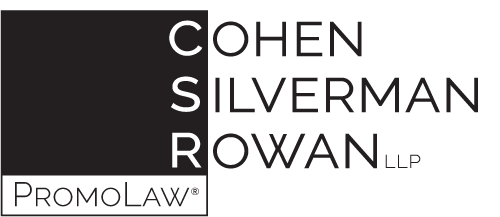Sports & Event Marketing
The World Series. The Super Bowl. March Madness. These and other major sports events have become extraordinarily popular, attracting the attention even of those who are not "sports fans" per se. This trend has not been lost on the promotion marketing community. Entities selling all types of goods and/or services want to get in on the action by offering sweepstakes and other promotions tied into sports events. While something of a "no-brainer" from a marketing standpoint, sports-related promotions present various potential legal pitfalls.
Perhaps the first - and biggest - issue concerns securing authorization from the event's sponsor. As the cliché goes, the event sponsor "holds all the cards." To start, the notoriety of its event puts the sponsor in an enviable bargaining position. After all, there is only one Super Bowl, and many businesses that wish to associate themselves with it. And, some of the potential suitors may be business competitors, each vying for the right, for example, of calling themselves the exclusive soft drink of the sports event. Unsurprisingly, this creates a vigorous and lucrative market for the sponsor in selling sponsorship rights to its event. So, notwithstanding the marketer's (and the marketer's client's) keen interest, rights to the event ultimately may not be available at a reasonable (or even, any) price.
Thus, the sponsor will try to protect the value of the event sponsorships it has previously sold, the goal here being to prevent unauthorized entities from poaching, by implying an association with its event. If unchecked, such unauthorized activities would undermine the value of the sponsorship rights sold by the event sponsor. In other words, why would anyone want to pay the event sponsor a significant sum when they could get for free pretty much the same benefits as an official sponsor?
Over time, event sponsors have developed various legal techniques designed to safeguard their investment. They often obtain federal and perhaps also state trademark registrations for the name of the event as well as for any logos or designs identifying the event. Generally, should an unauthorized party then use name(s), logo(s) and/or design(s) which are the same as or similar to the event sponsor's trademark(s), thereby violating the event sponsor's trademark rights, applicable laws provide that the sponsor may recover damages as well as perhaps other types of relief. In addition, event sponsors conventionally include language on event tickets prohibiting their use in sweepstakes or other promotions without the sponsor's consent. While of arguable validity, this tactic has functioned as an effective deterrent in the past.
Where does this leave the marketer? Does this mean that an entity simply cannot do a sports-themed promotion without the consent of the appropriate event sponsor? Well, no. Around the time of each major sports event, there are many promotions and offers that subtly or overtly reference the event. And, clearly, not all of these activities have been endorsed by the event sponsor. The key is to structure the promotion and concomitant advertising so as not to infringe upon the event sponsor's rights. Think of it as the marketer's "two-minute drill."

